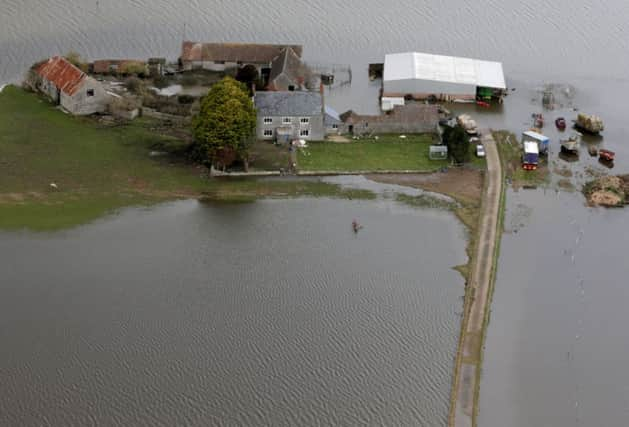Heed the real experts, on fish and floods


YOU wouldn’t necessarily expect flooding in Somerset to raise hackles among fishermen in Shetland. After all, we’re closer to the Arctic Circle than we are to Bridgwater, and what we fetch for our mackerel, cod and haddock matters more to us than the price of milk.
But angry we are. The fact is that the people now being forced to look at the consequences of their own ideological nonsense – the “wets, do-gooders and twitchers”, in Bridgwater MP Ian Liddell-Grainger’s memorable phrase – bear a striking resemblance to the clowns who have been directing fisheries policy for far too long.
Advertisement
Hide AdAdvertisement
Hide AdYes, we have these people too. “Experts” who have never set foot on a fishing boat. Consultants who know it all from university libraries. Policy officers keen on fluffy animals, but only from a safe distance. Suburban researchers who have never asked anyone in a community like Shetland what living off the sea actually means. After all, what would we know about it, after only 4,000 years?
Like their friends in England’s Environment Agency, green activists lay down the law on everything from trawling to marine protection, safe in the knowledge that none of it will make the slightest difference to their smug lifestyles thousands of miles from our fishing grounds.
Active in so-called environmental NGOs, funded generously by obscure American foundations and – scandalously – the EU itself, they succeeded last year in convincing MEPs and fisheries ministers that it would be a great idea to ban the discarding of unwanted fish at sea.
Driven to righteous wrath by this practice, they spent more time with celebrity chefs than with people who actually catch fish. Surrounded by like-minded know-it-alls, they never once asked themselves why on earth fishing vessel skippers would want to burn precious fuel steaming up and down the North Sea, throwing perfectly marketable fish over the side. Perhaps they thought it was for fun.
If they had asked, they would have realised that the main reason for discards is regulatory, with a catastrophic EU management system actually prohibiting vessels landing part of what they catch. With the underlying disease left untreated, it is hard to see what good banning the symptoms will do. If quotas do not match what is out there, something has to give. Yet the ban has been approved, and the consequences are potentially dire.
At a time when North Sea fish stocks are generally recovering, and in some cases dramatically, we should be looking at an investment boom and a bright future for the next generation of fishers.
But thanks to the environmentalists, we have a dynamic industry threatened with bankruptcy. And the priceless jobs underpinning some of our most remote communities are at risk.
Which brings me back to the Somerset Levels. Farmers have had to wait until their land is 10ft under water before a minister – and just one, Eric Pickles – will admit that “we made a mistake” and that the government had “relied too much” on the “expert advice” it was getting from the Environment Agency.
Advertisement
Hide AdAdvertisement
Hide AdWill fishing communities have to wait until they are decimated before a minister admits that the government made a similar mistake on discards?
What happened in Somerset has a particular resonance among the fishing industry because we have to deal with the same three ingredients: a government (and European Commission, in our case) that refuses to listen to the people who actually know and understand the situation; a reliance on articulate but ignorant do-gooders whose expertise is often selective and well out of date; and a contemptuous disregard for the future of the community actually affected by what is decided.
The West Country floodwaters will eventually recede, and ministers will wring their hands and explain that nothing of the sort should ever be allowed to happen again.
But it is already happening again – in our fishing industry. And it will go on happening again, in one way or another, for as long as governments fail to understand who the experts really are. It’s not about degrees in eco-management or MBAs. It’s about doing it, being there and having the good sense to take generations-old wisdom into account.
Any Somerset farmer could have told ministers what was wrong. Many did, and armies of greens with their Bibles in their boots drowned them out. And now it’s the badgers that have drowned: a fine irony there.
Neither Somerset farmers nor Scottish fishermen hold a monopoly on the truth. But it is a mighty arrogance that excludes them from what they know best and live with every single day.
• Simon Collins is executive officer of the Shetland Fishermen’s Association
SEE ALSO